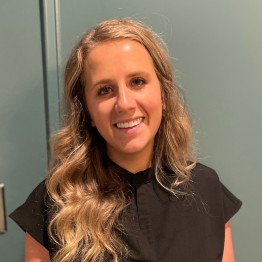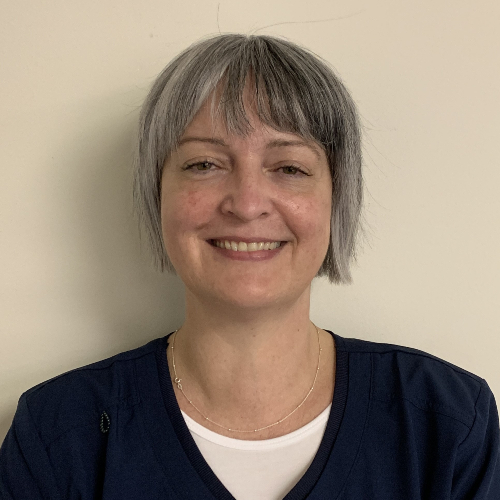Weight loss can be tricky because it encompasses many factors, from diet and exercise to stress management, medical conditions, and everything in between. For most, implementing a weight loss program considers multiple factors. Some people only require a few tweaks to their diets to make progress, while others need to incorporate more movement into their daily routines to meet their goals. For some, weight loss is more complex due to underlying medical concerns encompassing everything from a wide array of genetic predispositions to hormonal imbalances and specific medical diagnoses.
Here at Innova Primary Care, we know how frustrating sustainable weight loss can be for our patients. Knowing when to seek medical intervention for weight loss, including meeting with registered dietitians, the use of weight loss drugs, or surgical interventions, can be a challenge. Perhaps you are on a weight loss journey and feel at the end of your rope. You have tried a caloric deficit, incorporated strength training and cardiovascular exercise, and maybe even fallen victim to fad diets and unreasonable exercise programs with no discernible victorious outcomes. We are here to tell you there is hope. You may be at a place where medical interventions can help. Read on for more information.
Weight loss is a billion-dollar entity
In our social media-saturated world, it is easy to think that if we follow a fitness influencer’s recommended diet and exercise regimen, we will find success. So many voices are out there telling us how to eat, exercise, take supplements, and execute the proper morning routine to lose weight. But the thing is, we are all unique. What works for one person won’t necessarily work for another.
If you are on a weight loss journey and have yet to find success, you are not alone. In 2023, the weight loss industry was worth approximately 3.8 billion dollars, suggesting that many of us are putting money towards weight loss from dietary programming and supplements to fitness endeavors and beyond.
And for many of us, it isn’t working. So, what next?

Portrait of Plus Size Female Jogger Runner Taking in Green Park During Race. Running is great way to lose weight and prevent depression . Mental health day. Generative Ai content.
Shifts in diet and exercise to create weight loss
The reality is that for most, weight loss does not occur without a caloric deficit. This means that for most, your body must be in a calorie deficit for weight loss. Assuming no underlying medical conditions, most will see their fat loss drop when they consume fewer calories than they utilize during the day. There are always exceptions, of course. But, for the general population, a reasonable caloric deficit over time will yield weight loss.
There are a few ways to create a caloric deficit. One is to consume fewer calories than you expend during the day. The other is to create more movement to account for the calories you consume. If you are on a weight loss journey, tracking is vital to account for your daily activity and caloric consumption to know if you are on track for weight loss.
However, there are some medical conditions where a caloric deficit does not work. Some medications, such as steroids, cause weight gain and impact fat deposits regardless of caloric consumption. This is well beyond the scope of this blog post, but know there is still a way to make weight loss possible.
What does medical intervention for weight loss mean?
Medical intervention for weight loss means losing weight with the help of a medical professional. If you have tried to lose weight on your own without success, it may be time to consult with a medical professional. Medical intervention can mean various things, from consulting with registered dietitians to weight loss drugs and even weight loss surgeries.
As you can see, there are many medical routes for weight loss. So, how do you know what is best for you?
Start small
With all the news of rapid weight loss due to the use of drugs or surgery, it can be easy to think this is the best route. However, there are adverse side effects to consider with both options, and we suggest you start with lifestyle changes long before you consider more drastic measures.
Seeking medical intervention for weight loss
If you have tried to lose weight on your own without success, several options are available. However, your intervention must be a personal decision rooted in confidence. We believe how you approach weight loss is a personal decision, and while you have many options available to you, choosing any medication or surgical intervention must be one you make on your own after consulting with medical professionals.
Do your research
Several medical weight loss interventions are available these days, and knowing the best route for you comes down to your research and seeking advice from medical professionals. As we stated earlier, we recommend starting small. For this conversation, this means foregoing more drastic interventions to begin with and addressing your diet and movement.
You can consult with a registered dietitian
A registered dietitian (RD) or a registered dietitian nutritionist or RDN is a healthcare professional with specific credentials and specialized training. As of 2024, anyone interested in practicing as an RDN must have a master’s degree or above. Dietitians work in various environments, and meeting with someone who specializes in weight loss and proper nutrition is a great way to kick-start your weight loss journey and ensure you are going about the process safely and effectively.
Weight loss drugs
Prescription weight loss drugs such as orals or injectables may be the route you can take. With all the talk of Semaglutide medications on the market, it is essential to assess your risks and discern if these medications are right for you. While these medications may yield quick weight loss, they can also cause a loss of muscle mass and rapid weight gain once you decide to quit using them. You will need guidance if this is the route you choose.
These are potent drugs that must be monitored by medical professionals and never taken haphazardly. There is much to consider when you decide to take weight loss drugs of any type, so please consult with your physician and have a frank and thorough conversation about your needs.
Weight loss surgery
Surgical options for weight loss include:
- The gastric sleeve
- Gastric bypass
- Adjustable gastric banding
- Intragastric balloon procedure
- Biliopancreatic diversion with duodenal switch
These surgical options and procedures all vary, but their purpose remains the same: to allow for long-term sustainable weight loss.
The right type of intervention varies from person to person, and this is a decision you cannot make without medical assistance. Most surgical procedures require intensive surgery and are irreversible. It is important to note that these surgical options will forever change the way you consume food, and you must adhere to medical advice to lose weight and keep it off.
When to see medical assistance for weight loss
There is usually no “light bulb” moment where you know you need to seek help. If you have tried to lose weight on your own and feel like medical intervention is required, then please reach out to Innova Primary Care. We can schedule a time to meet and hear your concerns. We can also help develop a care plan for you and help guide you toward the next steps.




 About
About About
About About
About
 About
About About
About

 About
About About
About About
About About
About About
About












